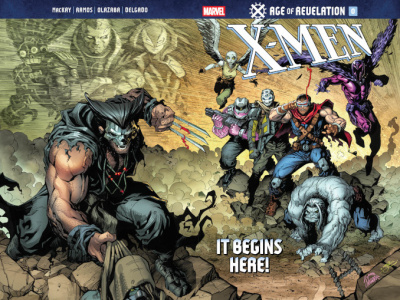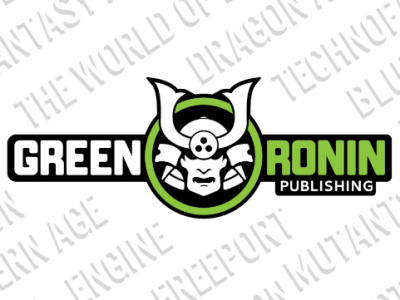 "All men want to be rich, rich man wants to be king; the king ain’t satisfied till he owns everything." – Bruce Springsteen
"All men want to be rich, rich man wants to be king; the king ain’t satisfied till he owns everything." – Bruce SpringsteenTuesday morning brought news that Amazon is now officially in the comics publishing business. After a year of dabbling with self-publishing and digital distribution arrangements, the online giant has launched Jet City Comics, with the announced intention to bring out original graphic works from household-name science fiction and genre authors including George R.R. Martin, Greg Bear, and Neal Stephenson, alongside accomplished comics creators like Jimmy Palmiotti, Justin Grey and Jimmy Broxton.
While the announcement itself might seem modest, the portents are ominous. Amazon is the world’s largest online retailer, and when the world’s largest anything decides to wade into a market, people take notice. Amazon doesn’t make low-stakes bets and its decision to turn its attention to comics – whether it wins or loses in the short term – means things are going to change.
Given Amazon’s immense size, legendary appetite and record of destruction on a cosmic scale, it’s reasonable for comics fans to conclude that Galactus has arrived on earth and is setting up his world-eating machinery as we speak. So how close is the apocalypse?
The 900 pound gorilla? It’s true that Amazon brings a number of inherent advantages to its publishing enterprise. Most significantly, it owns the most pervasive distribution channel for both physical and digital content. And unlike Comcast, the cable company that now has both production and programming capabilities with the acquisition of NBC-Universal, Amazon’s business isn’t regulated by the FCC. In fact, the federal government has so far chosen to give Amazon a pretty wide berth when it comes to anti-trust law.
Will Amazon use its control of the pipes to advantage its own publications over competitors? If past behavior is any indication, the short-term answer is no. Amazon’s market edge comes as much from its comprehensive scale and selection as from its convenience and ubiquity. Most comics publishers have other options for reaching customers, particularly on the digital side, and the brick-and-mortar direct market is still critical to the periodical comics business. As long as Amazon has more to lose by pissing off the bigger publishers than it has to gain by promoting its own wares, it is likely to remain relatively neutral on the distribution side. But don’t be surprised if you start getting some interesting and coincidentally self-serving recommendations from Amazon once they know you are a regular customer for comics and graphic novels.
Amazon sees a market opening. One reason why Amazon has chosen this moment to get into the comics business as a publisher rather than just a platform is because of the inherent schism in the industry. Big name creators are fleeing the corporate regimes of the Big Two in droves, opting for exclusives at smaller companies that offer creator ownership, the freedom of digital self-publishing, the opportunities of crowd-funding, or some combination of those. The hardening of attitudes and business practices at DC and Marvel has made this a relatively easy choice for creators with an independent streak and built-in fan base.
The problem is that drawing Superman or the X-Men carries a paycheck, whereas doing your own thing carries risk. For mid-level talent and those with pesky expenses like mortgages and college tuition, the benefits of knuckling under to corporate policies while working on household-name properties exceed the costs. If only there were a way to split the difference between giant corporations with unlimited resources and mass distribution channels, and the creative freedom of the frontier…
Can they execute? Amazon is not the only top-level media/entertainment/technology company to see an opening here, but they are one of the better-positioned when it comes to lining up resources from publishing, creative and distribution. Of course it all comes down to execution. Lots of companies have put together killer lineups of talent, only to under-deliver quality work because their senior leadership falls victim to the common fallacy that "we’re smart enough to make awesome movies, videogames, TV shows, etc… how hard can it be do comics?"
While confidence certainly is not in short supply at Amazon’s South Lake Union campus, it is unclear if the company can bring together a management team with the experience and commitment to produce comics that people want to read, regardless of the names they can line up to be in their press release. If they fail at that, their other advantages will count for nothing. As least, for a while.
In it for the long term. The one area where Amazon wins is through patience. The company has shown a consistent willingness and ability to lose vast sums of money to enter new markets. In this regard, they are less like Galactus raining destruction from the heavens, and more like a crocodile who drags victims to the bottom of the river then waits for them to drown because it can hold its breath longer. Matt Yglesias, the economics writer at Slate, observed last October that "in any line of business where you're earning healthy profits you always need to worry that a competitor will undercut you on price. But normally you can also have some confidence that they'll be restrained in their price cutting by the need to maintain profits of their own. Amazon is totally off the leash in this regard."
Amazon’s stockholders not only do not expect the company to make money in a new line of business for the foreseeable future, they are fine with operating at a structural loss as long as there is a net gain in market share. That is not true of any other player in the entertainment/media/technology space larger than a startup, and it’s allowed Amazon to drive competitors crazy in every arena from ebooks to cloud computing services to same-day delivery of purchased goods. Then, once they’ve vanquished competitors, they start turning the screws.
Who wins? If Amazon is serious about being a player in comics, they will start handing out candy to creators and fans alike from a bottomless bag of treats, eventually forcing the larger players to react. And they will need to do it for a long time. As long as that battle rages, fans and creators will be the winners. Maybe a few small or mid-sized presses will benefit as well if Amazon decides to conquer by acquisition. But once it’s over – that will be a different story.
Rob Salkowitz (@robsalk) is author of Comic-Con and the Business of Pop Culture. He lives and works in Seattle.
The opinions expressed in this column are solely those of the writer, and do not necessarily reflect the views of the editorial staff of ICv2.com.







